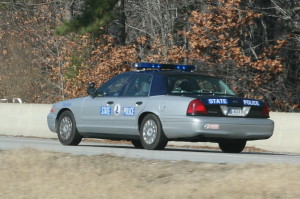The Virginia Supreme Court will hear a petition from the ACLU to determine whether or not a license plate tag is considered “personal information”.
We’ve been talking about the use of automatic license plate scanners for quite a few years. They are a disturbing and open-ended civil liberties violation when there are no protections or limitations on access, which is typical. The ability to data-mine your car’s locations from years ago, when you were never accused of any crime, without any warrant or judicial oversight, is a real problem.
Efforts and new efforts and interest in restricting Virginia’s legal ability to store data indefinitely has been off and on.
In 2013, then-Attorney General Ken Cucinelli asked for restricted data collection in an opinion, and in 2014 Virginia legislators, as part of the Ben Franklin Liberty Caucus were looking to make the gathering of license plate data from Automatic Licence Plate Readers (ALPR) limited as part of the Virginia legal code.
 We would like to see restrictions that limit accessing the data to an active manhunt, with a warrant. Also, there should be strict limits to the amount of time this license plate data can be stored.
We would like to see restrictions that limit accessing the data to an active manhunt, with a warrant. Also, there should be strict limits to the amount of time this license plate data can be stored.
These license plate readers are mounted on the cruisers of lots of police vehicles. They are able to take thousands of pictures an hour of license plates that are within the camera’s range. Those plate numbers are scanned by a computer and stored in a database with time, date, and GPS location where the car was located at the time.
Legitimate uses for this technology included identifying stolen cars, fugitives, or other scofflaws who have been pre-identified as BOLOs. (Be On The Lookout).
But you can easily imagine what can be learned from a quick search of where a person’s car may have been location tagged in the days, weeks, and even years previous.
Especially as they can easily cross-reference your car with other associations – other cars that may be frequently spotted parked next to yours at community gatherings, churches, or political rallies.
A nefarious government could use this information for a wide variety of terrible uses that should be clear violations of the Constitution. Yet, the laws and courts have not caught up with what this technology is capable of. And the tech gets cheaper and more widespread every year.